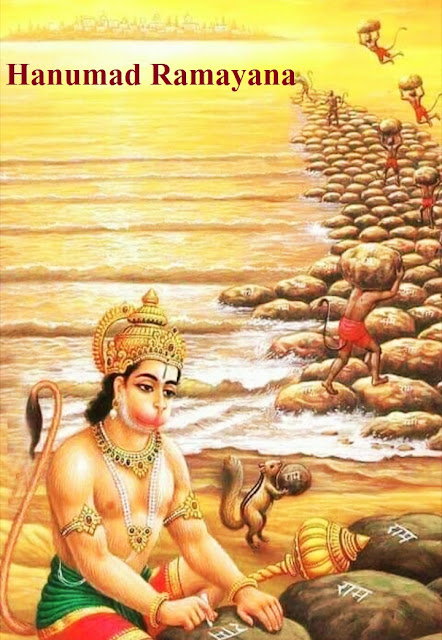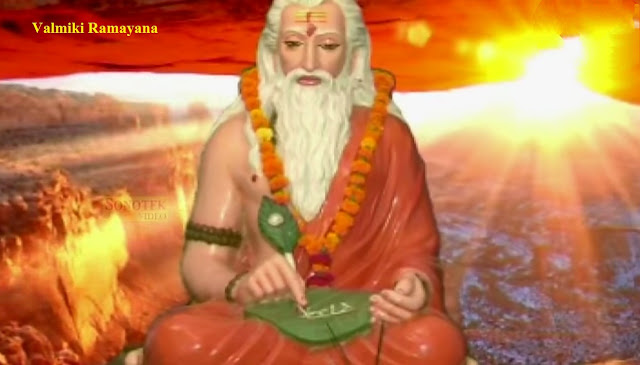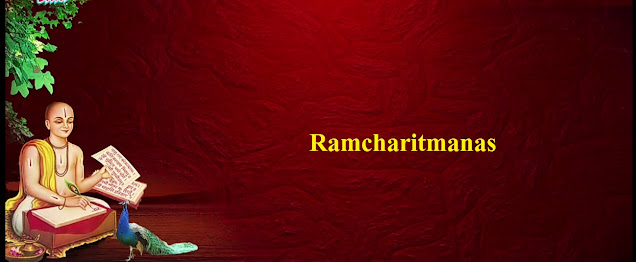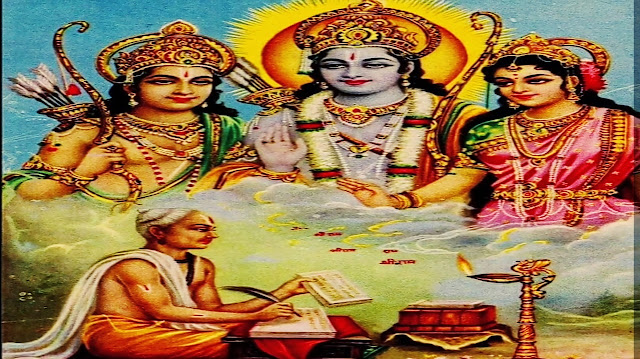Who Wrote Ramayana?
Table of Contents
According to the scriptures,Ramayanawas first written by Hanumanji. Hanuman ji wrote the Ramayana with his nails on a rock. This Ramkatha was written before Valmiki’s Ramayana too. It is famous as ‘Hanumad Ramayan’.
 |
| Who Wrote Ramayana? |
Hanumaad Ramayana-
Lord Hanuman writtenHanumad Ramayanawhen Lord Sriram was ruling in Ayodhya after conquering Ravana, and Shri Hanuman used to go to the Himalayas.
There, the Hanuman write the story of Ramayana with his nails daily on a rock, during austerity of Lord Shiva. In this way he composed the ‘Hanumad Ramayana‘ while mentioning the glory of Lord Shriram.
 |
| Hanumad Ramayana |
After a long time, Maharishi Valmiki wrote ‘Valmiki Ramayana‘ and went to Kailash, Lord Shiva’s residence to show it. Lord Shiva shows ‘Hanumad Ramayana‘ composed by Hanuman. Seeing this Ramayana, Valmiki considers the Ramayana written by himself as very small.
After the Ramayana written by Hanumanji was thrown into the sea, Maharishi Valmiki said, “O Hanuman, you are blessed!” There is no other wise and compassionate like you. O Hanuman, I will have to take birth and one birth to praise your majesty and I promise that in Kalayug I will be born to write another Ramayana. Then I will write this Ramayana in the language of common people.
It is believed that the creator ofRamcharitmanaswas the second birth of Goswami Tulsidas,Maharishi Valmiki. Before writing ‘Ramcharitmanas‘, Tulsidasji praises Hanumanji by writing Hanuman Chalisa and after the inspiration of Hanumanji, he again writesRamcharitmanas.
First of all, the story of Lord Ram was narrated by Lord Shankar to Mata Parvatiji. The story was heard by a crow.
The rebirth of the same crow was in the form of a Kakbhusundi. He remembered the story of Ramayana in his previous birth, from the mouth of Lord Shankar. He narrated Ramayana story to his disciples Thus, the promotion of the Ramakatha was spread.
Valmiki Ramayana-
 |
| Valmiki Ramayana |
The character of King Ram is played by Valmiki as an ordinary human who does not hesitate in taking any decision for the benefit of his subjects by having a king to rule in a fair manner by becoming a king. There is no visible use of any divine power anywhere in his works. Valmiki has portrayed Ram as an ordinary son, brother and husband in the entire epic.
Not only Shree Ram but also every character of this epic, Bharat, Shatrughna, Lakshman or Vibhishan, like a wife Urmila, Sita, Kaikey and Mandodari, a friend like Hanuman or a Dasaratha father, every character is empowered And presented in motivational form.
Ramcharitmanas-
In the period language,Ramcharitmanascomposed by Tulsidas is composed in sixteenth century.
This Ramayana is a symbol of Valmiki Ramayana, a composition written by a devotee of love and devotion to his adoration.
 |
| Ramcharitmanas |
Tulsidas ji has given a clear picture of Ram’s character in this Ramayana. The character of Lord Rama, the incarnation of Vishnu, is depicted in the form of seven kandas.





I’m really impressed with your writing abilities and also
with the layout on your weblog. Is that this
a paid topic or did you customize it your
self? Either way stay up the excellent high quality
writing, it’s rare to look a great weblog like this one
these days. Stan Store!